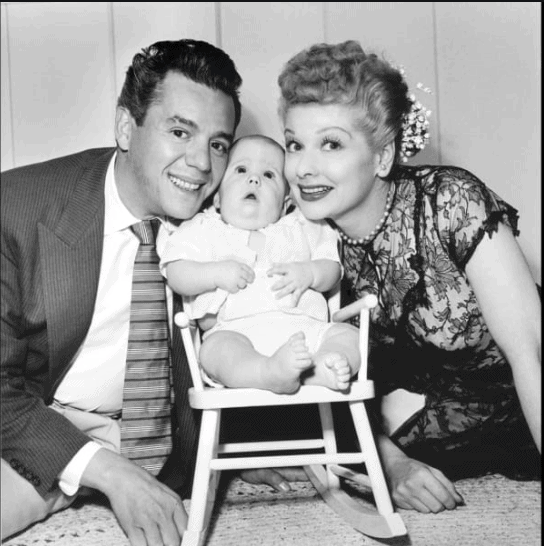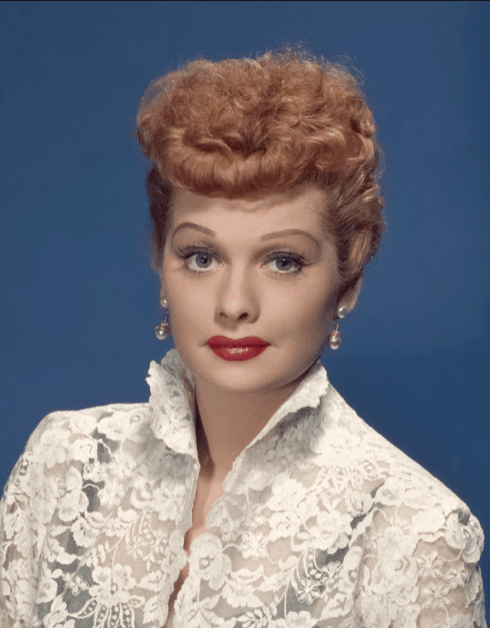Lucille Desirée Ball’s life was not a trajectory to stardom. It was a slog that began with a childhood and youth constantly in upheaval. Parenting, place of residence, and expectations for her behavior varied every few years. Her career followed a similar path: steady but ever-changing. She worked as a model then found roles in theater, radio, and minor roles in movies. In one of her roles she met Desi Arnaz and married him.
In the 1950’s Ball and Arnaz formed a production company they named Desilu Productions. Together they created a television sitcom, one of the earliest, in which they would star. Desi would play a Cuban bandleader (himself), and Lucy would be a housewife constantly trying to break into show business. They approached CBS with their idea, but there were three strikes against them. First, both CBS and the potential sponsor, Phillip Morris, disliked the pairing of a Latin husband with an All-American redhead. Second, they wanted the pair to film in New York, not in California as shows aired first on the East Coast, not the West Coast. Third, Desilu planned to use film rather than the cheaper kinescope and CBS was not willing to pay the difference.
Desilu, however, did not strike out. They persisted. Ball and Arnaz created a vaudeville show on this theme that was successful enough to win them CBS’ approval. They also decided to film before a live audience, but not air the show live. As far as the use of film rather then kinescope , the production company accepted a reduction in pay to compensate, in exchange for full rights to the show after its first airing.

This deal sealed the production company’s future as the show ran for six years and never ranked lower than third in Nielsen ratings. During four seasons of those seasons it was the No. 1 show in the country. I Love Lucypioneered filming before a live studio audience, also the use of multiple cameras and multiple sets that were adjacent to one another.
When Lucy was pregnant, they wanted to include that in the show. After much discussion, it was decided that they could go ahead, but could not use the word “pregnant.” She was simply “expecting,” or as Desi said, “spectin.” The ratings for the show where Little Ricky was born has a larger audience than Eisenhower’s inauguration.
When Lucy and Desi divorced, Lucy bought out Desi and became the First Woman head of a television production studio. Desilu Productions’ successes included the comedies Our Miss Brooks, Make Room for Daddy and The Dick Van Dyke Show. They also ventured into science fiction with Star Trek and Mission: Impossible. The historical drama The Untouchables also was produced by Desilu. The company was later sold for a significant sum to the company that would become Paramount Pictures.
Lucille Ball never stopped working. She had other television shows, never as successful as I Love Lucy, but she continued to produce, act, and manage. In 1996 TV Guide included her in its list of Fifty Greatest TV Stars of All Times. Among her many awards, including two stars on the Hollywood Walk of Fame. In 1971 she became the First Woman to receive the International Radio and Television Society’s Gold Medal. Her contributions to the Women’s Movement were recognized in 2001 when she was inducted into the National Women’s Hall of Fame.
Lucille Ball is probably remembered first as a great comedienne. We should also honor her as a powerful, persistent woman whose firsts paved the way for others.

